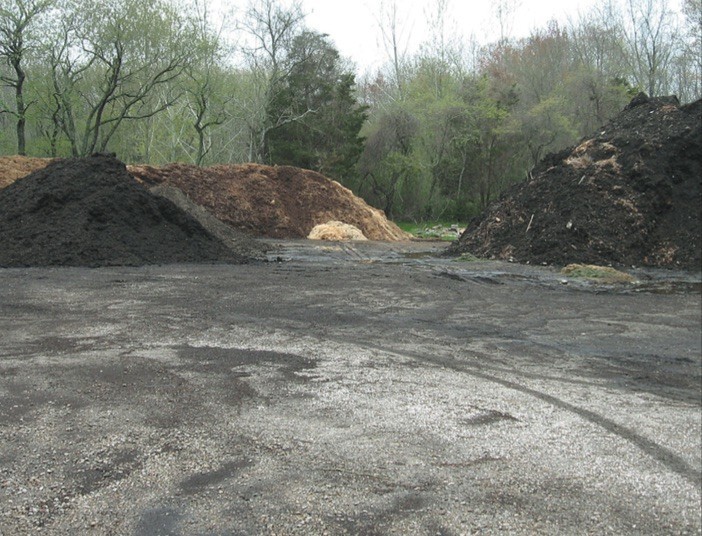Supreme Court upholds Tiger Tree conviction
Agreed that compost ‘manufacturing’ violated town zoning
TIVERTON — The state Supreme Court has denied an attempt by Tiger Tree and Landscaping to overturn its 2013 conviction for violating Tiverton zoning by manufacturing compost at its Crandall Road property.
In its December 15 decision, the high court said the Superior Court acted properly back in December, 2013, when it sided with Tiverton in the town’s prolonged battle with Tiger Tree Landscaping and owner James Pelletier.
The case, which pitted neighbors and the town building inspector against Tiger Tree since around 2005, went first to the town’s municipal court in 2009 where Tiger was found liable for illegally manufacturing compost in a residential zone (R-80), and fined $2,000.
Mr. Pelletier appealed that decision to the Superior Court which agreed that the defendants had violated the town zoning code by manufacturing compost in a residential zone. Although the town won that case, the judge at the time only awarded a fine of $1 rather than the $1.7 million that had been sought by the town. Tiverton appealed the $1 fine but eventually dropped that appeal.
Tiger then appealed to the state Supreme Court.
The company argued that producing compost on its property (Mr. Pelletier owns 30 acres including a one-acre nursery there) is an accessory use to their permitted nursery activities.
Tiger also argued that the judge had overlooked evidence and that the Tiverton Zoning Ordinance is so vague on the matter as to be void.
The matter came to the town’s attention when neighbors complained about noise, heavy equipment and big trucks coming and going from the Crandall Road property. The building inspector testified that he made around 100 trips to the property from 2005 to 2010.
The inspector eventually served a summons, saying that, while a greenhouse or nursery is allowed in an R-80 zone, manufacturing compost is not.
When the case reached Superior Court, a state Department of Environmental inspector/scientist testified that he visited the property four times from 2007 to 2010 and each time “there were piles of material including: manure, wood chips, solid waste, yard waste, and bedding, along with combinations of the aforementioned materials, which he deemed to be compost,” the Supreme Court decision stated. He also testified that he observed piles of screened compost.
Then-Building Inspector Gareth Eames testified to manure and yard waste piles. He also “observed industrial earth-moving equipment used in the processing of compost, including a dump truck, a front-end loader, a bucket loader, an excavator, a skid steer, and a trommel (a revolving sieve for screening material) on the property.”
He also said he saw trees in the nursery portion of the property but there was no compost at the base of those trees.
Neighbor Peter Mello testified to the large number of tractor trailers coming and going and to noise of equipment that caused his house to vibrate.
Mr. Pelletier, in turn, admitted that material including grass clippings, horse manure and yard waste were shipped in for the purpose of composting, but “he disagreed that he was ‘manufacturing’ compost because once the materials are mixed together, ‘nature takes over’ and compost develops naturally when certain organic materials are combined in a heap.”
He also denied that any of the compost was packaged on site for sale off site.
Before the Supreme Court, Mr. Pelletier raised a number of issues, among them whether manufacturing of compost is allowed in an R-80 zone, whether the town had proved that he was “industrially manufacturing” compost, whether the zoning code is unconstitutionally vague, and whether the activities are protected buy the Rhode Island Right to Farm Act.
The high court ruled that some of those questions were not addressed in the earlier Superior Court case so could not be part of the appeal.
The court also saw no indication that the Superior Court judge had overlooked evidence, rather that the “trial justice undertook a thorough analysis of the trial testimony and the objective evidence before her and determined that defendants violated the ordinance beyond a reasonable doubt.”
That judge had written that the raw materials, “most pointedly manure” that were trucked in, combine with the “intensity of heavy equipment use and the volume of the various materials, which could be utilized [with] the ‘compost recipe,’ compel the conclusion, beyond a reasonable doubt, that [d]efendant was engaged in the ‘manufacturing of compost’ in violation of the applicable ordinances.”
Wrote the Supreme Court, “We contrast defendants’ actions with that of the average landowner who makes compost in his or her backyard by combining plant waste, food waste, and other organic materials in such a manner that natural fermentation occurs, resulting in a nutrient-rich material that one uses in gardening … The average composter does not bring heavy, noise-emitting industrial equipment coupled with delivery of truckloads of organic material onto his or her property on a daily basis.”
The court noted that Mr. Pelletier argued that the compost was not “packaged, shipped, and sold as a product either at wholesale or retail.”
To that, the Supreme Court replied, “whether or not defendants were selling their compost for profit is immaterial to our analysis in this case. The zoning ordinance is at issue here.”
As to claims that the town ordinance is too vague, the Supreme Court ruled that since vagueness was not brought up at trial in the first place it can’t be part of the appeal. But if it were, the court added that it does not believe the town ordinance is “unduly vague.”







